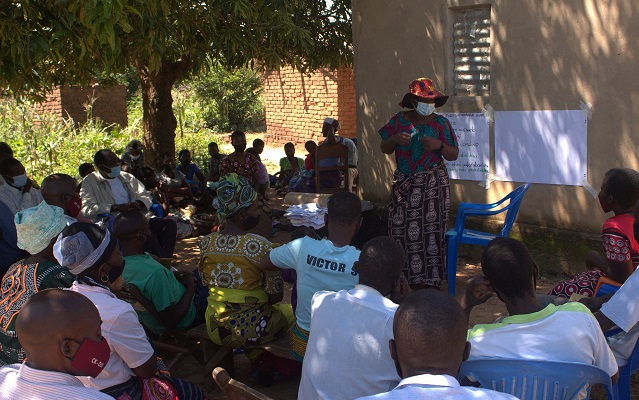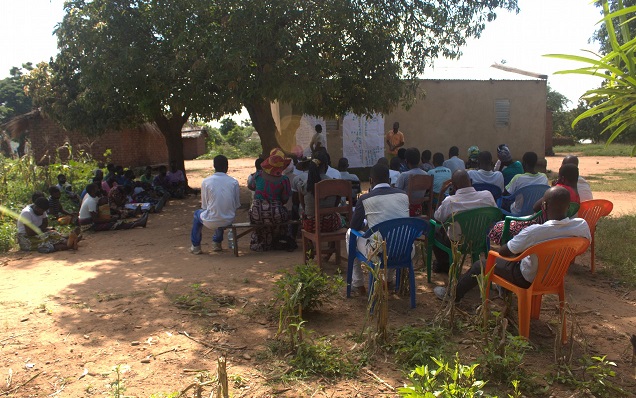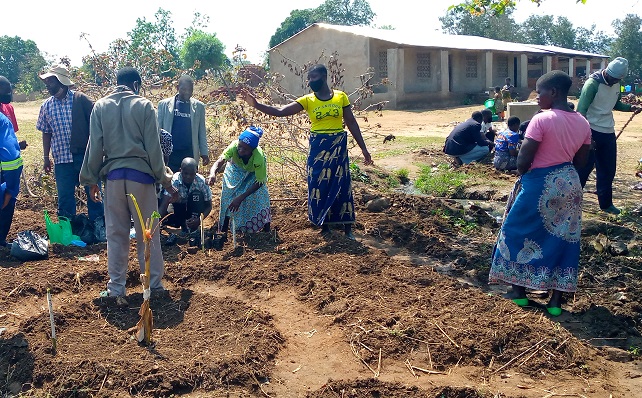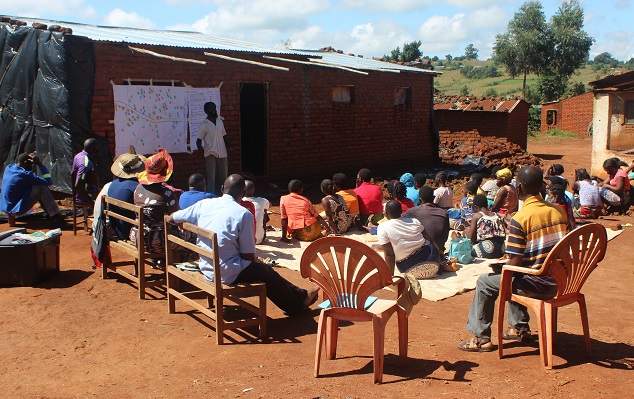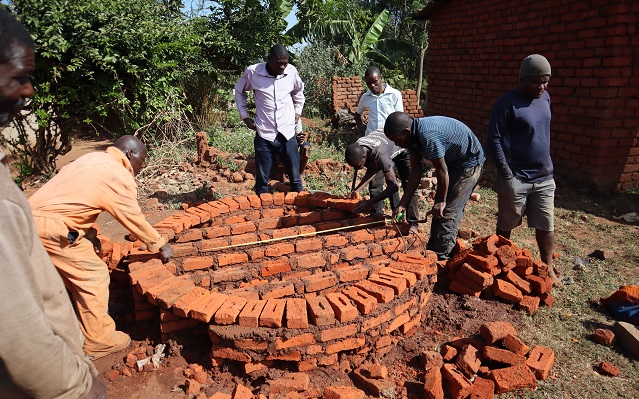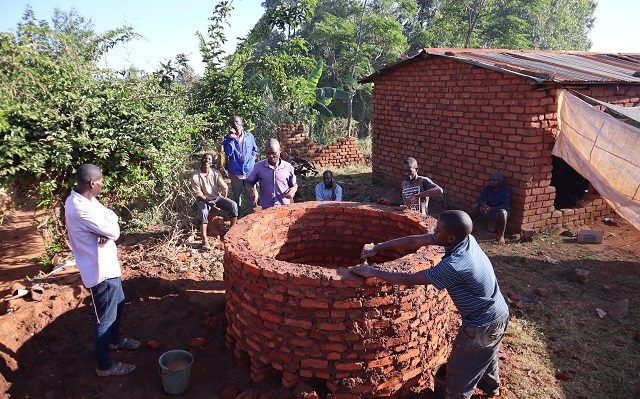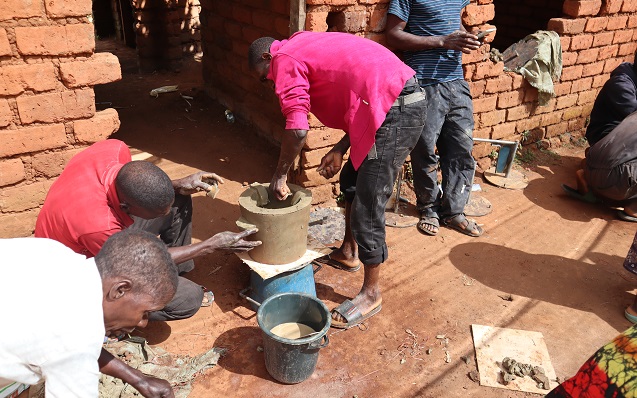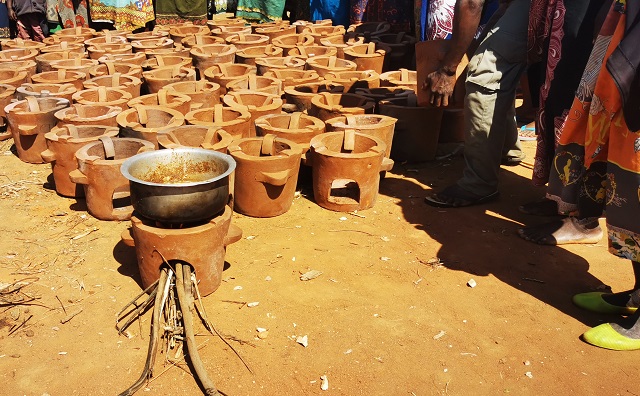Eco-Schools for eco-communities in Malawi
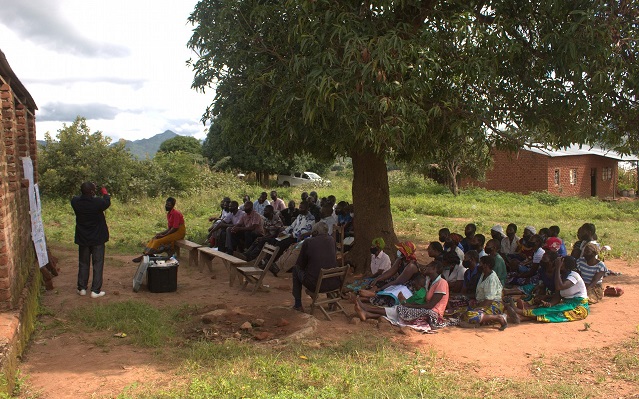
Although food security has been slowly improving in Malawi over the past years, deforestation as well as extreme weather conditions, such as cyclones, are threatening the prospects, especially of the young generation. Like in many other countries, climate change is not yet part of the school curriculum. The IKI Small Grants project aims to tackle this problem by targeting five schools in Chikwawa and Thyolo Districts to transform into so-called eco-schools. It conducts training workshops on agroecology, food security, energy efficiency (rocket fuel stoves), and water conservation with teachers, students, and community members. Everyone in the community is encouraged to actively participate as children, parents, and teachers transform whole communities into ecovillages. Children and youth act as hubs of inspiration towards climate-resilient households. The development and distribution of a teacher training module on each of the proposed environmental actions allows a widespread dissemination of the concept.
INITIAL SITUATION
Malawi is one of the poorest countries in the world with 69 per cent of the population living below the poverty line and 25 per cent living in extreme poverty. Poverty hits children the hardest and threatens their most basic rights to survival, health, and nutrition, education, participation, and protection from harm and exploitation. These issues are worsened by the effects of climate change and environmental degradation in Malawi. The curriculum taught in schools does not address these challenges.
TARGET GROUP
The targeted schools and school communities are in Southern Malawi, in Chikwawa and Thyolo districts. Direct beneficiaries of the project are children, parents, teachers, and the local villages around the schools as well as local smallholder farmers. The project hopes to inspire surrounding schools and the larger education system to implement the eco-village model.
APPROACH AND ACTIVITIES
This IKI Small Grants project seeks to address the climate-emergency situation in Malawi straightforwardly and practically. Schools and Colleges Permaculture Programme SCOPE Malawi with support from the Regional Schools and Colleges Permaculture Programme (ReSCOPE) and the Global Ecovillage Network (GEN), envisions to bring concrete support to selected communities in the most affected areas of Malawi. It aims to spread the Eco-Schools for Eco-Communities approach by teaching climate resilience skills.
To do so, the project follows three stages of implementation:
1) Five schools and surrounding communities receive training workshops in agroecological farming, water conservation methods, and the construction and use of fuel-efficient rocket stoves. They receive support to transform into so-called eco-schools. An eco-school is a productive and multi-purpose institution with a healthy environment. They are designed to meet the ecological, cultural, educational, nutritional, and social needs of their pupils, teachers, and their families. Schools are assisted to provide renewable energy, effectively manage water, and improve food security by growing climate-resilient crops using agroecology. The schools should act as inspiration hubs for the surrounding villages, allowing the upscaling of the measures implemented in the schools.
2) Following this, an online teacher training module on eco-schools is developed and distributed to train teachers in multiple schools on the eco-school model.
3) The communities surrounding the five targeted schools are engaged throughout the project cycle. 50 households receive an ecovillage design training to encourage a transition to the ecovillage model. The impacts on specific ecological, social, and economic criteria in the targeted communities are evaluated with the Ecovillage Impact Assessment Tool developed by GEN. It evaluates how sustainable and effective the implemented ecovillage and ecological design tools are.
LATEST PROJECT HIGHLIGHTS AND IMPACTS
- Project finalised.
- 5 target schools received trainings on how to transition into eco-schools
- 97 people (56 female and 41 male) trained in ecovillage designing, focussing on community needs assessment and drawing interlinkages of received trainings to community wellbeing
- Community mapping achieved unification of community leaders and community members by enabling common understanding of problems
- Greening Schools Manual published
CAPACITY DEVELOPMENT
IKI Small Grants supports SCOPE Malawi in their organisational capacity development through:
- training in child protection for all SCOPE Malawi staff members and partners who work with children
- training in inclusive education, safeguarding, and diversity
- the development of a policy on safeguarding the rights of children
ABOUT THE ORGANISATION
The non-governmental organization SCOPE Malawi was established in 2015 to build the capacity of local organizations to facilitate sustainable land use in communities through schools. They facilitate the sharing of experiences with partners who are working with school and college communities to build resilient and productive environments. SCOPE Malawi helps interested partner organizations to use the Integrated Land Use Design (ILUD) process as a tool for school and college communities to develop multi-functional landscapes that help them to move towards food sovereignty, improved nutrition, and sustainable management of natural resources. The ILUD process uses permaculture practices.

